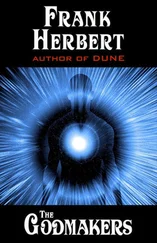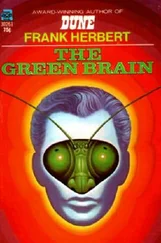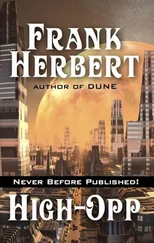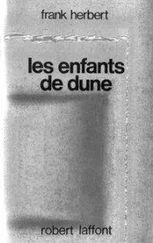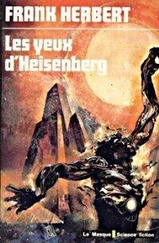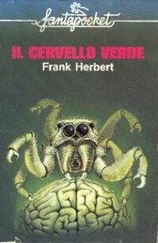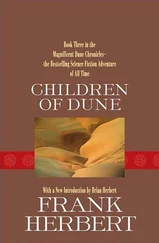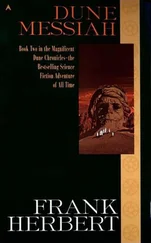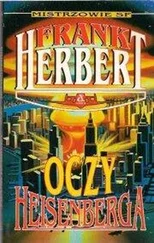Frank Herbert - Whipping Star
Здесь есть возможность читать онлайн «Frank Herbert - Whipping Star» весь текст электронной книги совершенно бесплатно (целиком полную версию без сокращений). В некоторых случаях можно слушать аудио, скачать через торрент в формате fb2 и присутствует краткое содержание. Год выпуска: 1969, Жанр: Фантастика и фэнтези, на английском языке. Описание произведения, (предисловие) а так же отзывы посетителей доступны на портале библиотеки ЛибКат.
- Название:Whipping Star
- Автор:
- Жанр:
- Год:1969
- ISBN:нет данных
- Рейтинг книги:4 / 5. Голосов: 1
-
Избранное:Добавить в избранное
- Отзывы:
-
Ваша оценка:
- 80
- 1
- 2
- 3
- 4
- 5
Whipping Star: краткое содержание, описание и аннотация
Предлагаем к чтению аннотацию, описание, краткое содержание или предисловие (зависит от того, что написал сам автор книги «Whipping Star»). Если вы не нашли необходимую информацию о книге — напишите в комментариях, мы постараемся отыскать её.
Whipping Star — читать онлайн бесплатно полную книгу (весь текст) целиком
Ниже представлен текст книги, разбитый по страницам. Система сохранения места последней прочитанной страницы, позволяет с удобством читать онлайн бесплатно книгу «Whipping Star», без необходимости каждый раз заново искать на чём Вы остановились. Поставьте закладку, и сможете в любой момент перейти на страницу, на которой закончили чтение.
Интервал:
Закладка:
Tuluk extruded a single mandible, scratched thoughtfully at the right lip of his face slit. One orange eye became visible as he turned, glanced at McKie.
"Well?" McKie said.
"The only planet where this material could have been grown ceased to exist several millennia ago," Tuluk said. "There was only one place - a peculiar combination of chemistry and solar energy . . ."
"You've got to be mistaken! The stuff's right there."
"The Archer's Eye," Tuluk said. "You recall the story of the nova there?"
McKie cocked his head to one side, thought for a moment, then, "I've read about it, yes,"
"The planet was called Rap," Tuluk said. "This is a length of Rapvine."
"Rapvine."
"You've heard of it?"
"I don't believe so."
"Yes, well . . . it's strange stuff. Has a relatively short life span, among its other peculiar characteristics. Another thing: the ends don't fray, even when it's cut. See?" Tuluk plucked several strands from the cut end, released them. They slapped back into position. "It was called intrinsic attraction. There's been considerable speculation about it. I'm now in a position to . . ."
"Short life," McKie interrupted. "How short?"
"No more than fifteen or twenty standard years under the most ideal conditions."
"But the planet . . ."
"Millennia ago, yes."
McKie shook his head to clear it. His eyes scanned the length of silvery rope suspiciously. "Obviously, somebody found how to grow the stuff someplace other than Rap."
"Perhaps. But they've managed to keep it a secret all this time."
"I don't like what I think you're thinking," McKie said.
"That's the most convoluted statement I've ever heard you make," Tuluk said. "Its meaning is clear enough, however. You believe I'm considering the possibility of time travel or . . ."
"Impossible!" McKie snapped.
"I've been engaged in a most interesting mathematical analysis of this problem," Tuluk said.
"Number games aren't going to help us."
"Your behavior is most un-McKie," Tuluk said. "Irrational. Therefore, I'll try not to burden your mind with too much of my symbolic construction. It is, however, more than a game for . . ."
"Time travel," McKie said. "Nonsense!"
"Our habitual forms of perception tend to interfere with the thinking process required for analysis of this problem," Tuluk said. "Thus, I discard these modes of thought."
"Such as?"
"If we examine the series relationships, what do we have? We have a number of point-dimensions in space. Abnethe occupies a position on a specific planet, as does the Caleban. We are given the actuality of contact between the two points, a series of events."
"So?"
"We must assume a pattern to these point-contacts."
"Why? They could be random examp -"
"Two specific planets whose movements describe coherent patterns in space. A pattern, a rhythm. Otherwise, Abnethe and her crew would be attacking with more frequency. We are confronted by a system which defies conventional analysis. It had temporal rhythm translatable into point-series rhythm. It is spatial and temporal."
McKie felt the attraction of Tuluk's argument as a force lifting his mind out of a cloud. "Some form of reflection, maybe?" he asked. "It doesn't have to be time trav -"
"This is not a fugue!" Tuluk objected. "A simple quadratic equation achieves no elliptical functions here. Ergo we are dealing with linear relationships."
"Lines," McKie whispered. "Connectives."
"Eh? Oh, yes. Linear relationships which describe moving surfaces across some form or forms of dimension. We cannot be sure of the Caleban's dimensional outlook, but our own is another matter."
McKie pursed his lips. Tuluk had moved into an extremely thin air of abstractions, but there was an inescapable elegance to the Wreave's argument.
"We can treat all forms of space as quantities determined by other quantities," Tuluk said. "We have methods for dealing with such forms when we wish to solve for unknowns."
"Ahhh," McKie murmured. "N-dimension points."
"Precisely. We first consider our data as a series of measurements which define the space between such points."
McKie nodded. "A classic n-fold extended aggregate."
"Now you begin to sound like the McKie familiar to me. An aggregate of n dimensions, to be sure. And what is time in such a problem? Time we know to be an aggregate of one dimension. But we are given, you'll recall, a number of point-dimensions in space and time."
McKie whistled soundlessly, admiring the Wreave's logic, then, "We either have one continuous variable in the problem or n continuous variables. Beautiful!"
"Just so. And by reduction through the infinity calculus, we discover we are dealing with two systems containing n-body properties."
"That's what you found?"
"That's what I found. It can only follow that the point-contacts of our problem have their separate existence within different frameworks of time. Ergo, Abnethe occupies another dimension time from that of the Beachball. Inescapable conclusion."
"We may not be dealing with time travel phenomena in the classic fictional sense," McKie said.
"These subtle differences the Caleban sees," McKie said. "These connectives, these threads . . ."
"Spiderwebs embedded in many universes," Tuluk said. "Perhaps. Let's assume individual lives spin these web threads . . ."
"Movements of matter undoubtedly spin them, too."
"Agreed. And they cross. They unite. They intersect. They combine in mysterious ways. They become tangled. Some of the web threads are stronger than others. I have experienced this entanglement, you know, when I placed the call which saved your life. I can imagine some of these threads being rewoven, combined, aligned - what have you - to recreate conditions of long past times in our dimensions. Might be a relatively simple problem for a Caleban. The Caleban might not even understand the recreation the way we do."
"I'll buy that."
"What would it take?" Tuluk mused. "A certain poignancy of experience, perhaps; something which imparts sufficient strength to the lines, threads, webs of the past that they can be picked up, manipulated to reproduce the original setting and its contents."
"We're just tossing words back and forth," McKie objected. "How could you reweave an entire planet or the space around . . ."
"Why not? What do we know of the powers involved? To a crawling insect, three of your strides may be a day's journey. "
McKie felt himself being convinced in spite of native caution. "It is true," he agreed, "that the Caleban S'eye gives us the power to walk across light years."
"Such a common exploit that we no longer even wonder at the enormous energies this must require. Think what such a journey would mean to our hypothetical insect! And we may be getting the merest glimpse of Caleban powers."
"We should never have accepted the S'eye," McKie said. "We had perfectly adequate FTL ships and metabolic suspension. We should've told the Calebans to go jump in their collective connectives!"
"And deny ourselves real-time control of our universe? Not on your life, McKie. What we should have done was test the gift first. We should have probed for dangers. We were too bedazzled by it, though."
McKie lifted his left hand to scratch his eyebrow, felt a prickling of danger. It rushed up his spine, exploded in a blow against his arm. He felt pain there; something bit through to the bone. Despite the shock, he whirled, saw a Palenki arm upraised with a glittering blade. The arm came through a narrow vortal tube. Visible through the opening were a Palenki turtle head, beside it, the right side of a PanSpechi face - purple scar on the forehead, one faceted emerald eye.
For a suspended moment McKie saw the blade begin its descent toward his face, knew it was going to strike before his shocked muscles could respond. He felt metal touch his forehead, saw the orange glow of a raygen beam stab past his face.
Читать дальшеИнтервал:
Закладка:
Похожие книги на «Whipping Star»
Представляем Вашему вниманию похожие книги на «Whipping Star» списком для выбора. Мы отобрали схожую по названию и смыслу литературу в надежде предоставить читателям больше вариантов отыскать новые, интересные, ещё непрочитанные произведения.
Обсуждение, отзывы о книге «Whipping Star» и просто собственные мнения читателей. Оставьте ваши комментарии, напишите, что Вы думаете о произведении, его смысле или главных героях. Укажите что конкретно понравилось, а что нет, и почему Вы так считаете.

